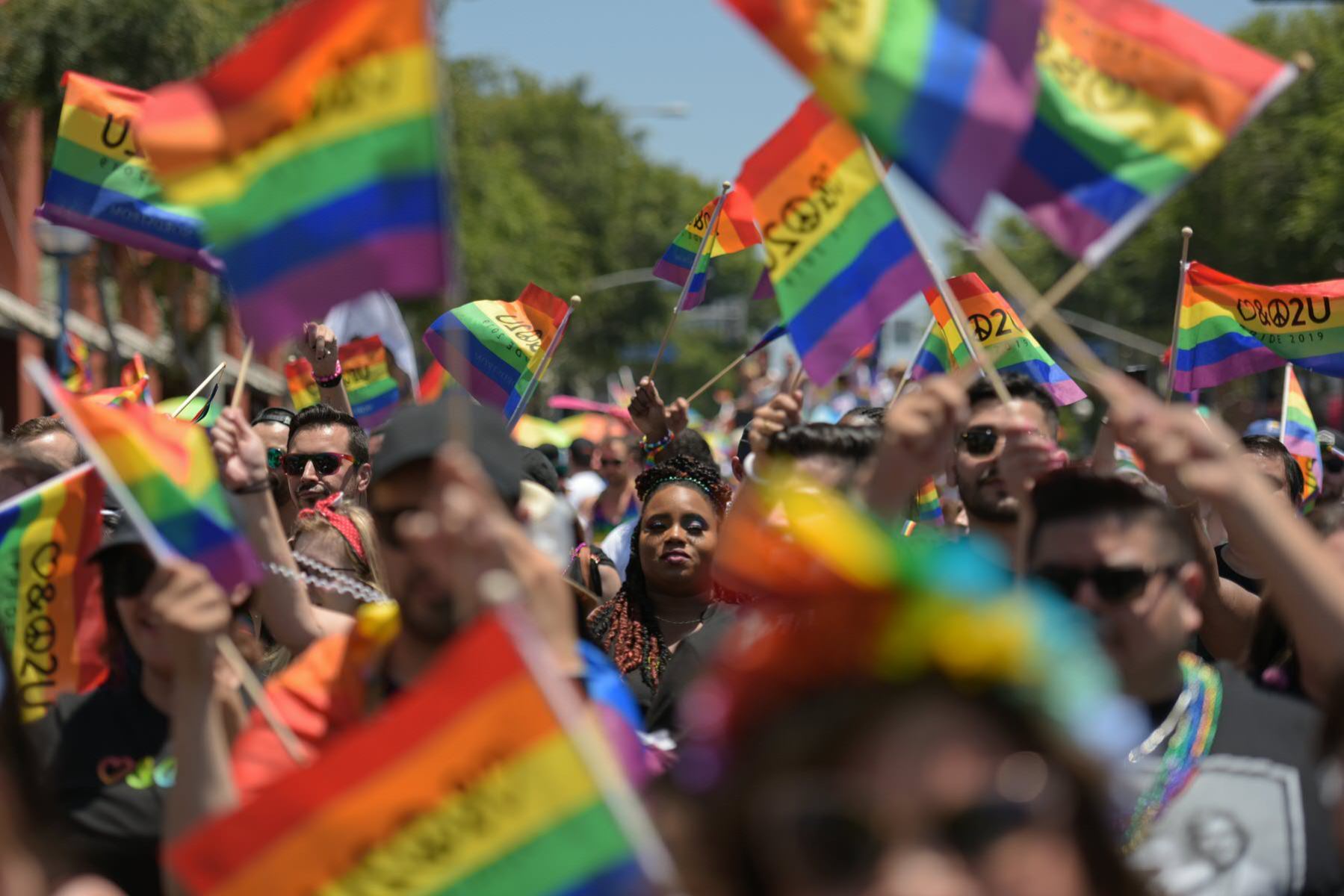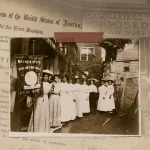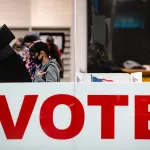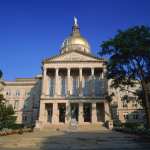Editor’s note: This article has been updated to reflect the results of the Senate vote on January 19.
As Senate Democrats on Wednesday failed to pass voting rights legislation in the face of Republican opposition, LGBTQ+ advocates grew worried about how rising voter restrictions being passed in states will disproportionately harm LGBTQ+ Americans — especially people of color and people with disabilities, who face multiple intersecting barriers.
While the House had previously passed legislation that would reverse some of those rules, a merged version of the John Lewis Voting Rights Advancement Act and the Freedom to Vote Act was unable to pass in the Senate without needed support from moderate Democrats on changing the filibuster, leaving the future of federal voting rights legislation unclear.
Other major advocacy groups, including two that support abortion rights, had also raised their voices to encourage a filibuster carve-out for voting rights ahead of the Senate vote on Wednesday.
The Human Rights Campaign, National LGBTQ+ Task Force, and National Black Justice Coalition — which advocates for Black LGBTQ+ people — are among the groups that called on LGBTQ+ people to pressure their senators into supporting the federal protections.
Nineteen states passed 34 laws last year restricting voting access — the most tracked by the Brennan Center for Justice since it began counting in 2011. Seven of those states have among the highest proportion of LGBT people in the country, per Gallup data tracked by the Williams Institute at the UCLA School of Law — including Georgia and Florida, which enacted far-reaching voting restrictions. At least four states prefiled restrictive bills in December, per the Brennan Center.
Throughout this, voting rights advocates have expressed concern that without stronger federal protections, the state-level restrictions may effectively disenfranchise citizens who do not have the resources to meet new voting requirements — primarily people of color, who are often unable to vote due to strict voter ID laws and are disproportionately subjected to longer Election Day voting lines that could be offset by expanded early voting hours.
LGBTQ+ advocates, already attuned to statehouse maneuvers after a record year for anti-transgender legislation, are paying attention. Estimates from older data analyzed by the Movement Advancement Project (MAP) show that 1 in 3 LGBTQ+ people live in the South, where eight states passed restrictive voting laws last year. That same MAP analysis, citing 2014 Williams Institute data, found that 1 in 5 LGBTQ+ Southerners are Black.
“That’s a significant percentage of LGBTQ folks, who also happen to be Black, that are going to be experiencing a return of Jim Crow-era tactics,” said Victoria Kirby York, deputy executive director of the National Black Justice Coalition.
Recently enacted laws that require photo identification to vote, with little to no ID alternatives, would prevent many transgender and nonbinary people from casting their ballot, since many in the community face financial and legal roadblocks to updating documents as they transition. Ahead of the 2020 election, the Williams Institute estimated that roughly 42 percent of eligible trans voters would be unable to vote due to not having identification that reflects their gender and meets state requirements.
Diego Sanchez, director of advocacy and policy at PFLAG National, which advocates for LGBTQ+ families and allied parents, said it can be emotionally fraught for a trans person to be challenged over their identification while trying to vote.
Prior to legally changing his name to Diego around 1994, and when some of his legal documents still bore his deadname — his name pre-transition — he feared being challenged over his identity at the polls.
“At any point at a voting place, someone if they knew me could say ‘I know that’s not that’s not your name.’ They could yell up my deadname, if they knew that. I would rather die,” he said. “It’s hard … because where you vote is where you live, so those people would see me the rest of my life.”
There are also more physical barriers to consider.
Legislation passed in states including Alabama and Texas last year to restrict curbside or drive-through voting, as well as separate efforts to make signature requirements for mail-in voting more strict, can make casting a ballot more difficult for voters with disabilities, said Bobby Hoffman, deputy director of the ACLU’s democracy division. And research from the Kaiser Family Foundation — as well as data from the 2015 U.S. Transgender Survey — shows that LGBTQ+ people in the United States dispropriately report living with a disability than the rest of the population.
“All polling places are not as accessible as they should be,” Kirby York said.
The reduction of curbside or drive-through voting also can restrict ballot access for people working low-wage jobs that don’t allow for time off to vote.
“LGBTQ workers are more likely to be in jobs with lower pay, and without paid time off, meaning if there is a really long line at your polling station, your boss may not be forgiving or understanding to let you be able to cast your ballot because you’re standing in line for three, four or five, six hours,” said Ross Murray, senior director of GLAAD’s media institute.
Without federal protections, advocates and experts fear that LGBTQ+ people — and all voters — will be further impacted by state voting restrictions.
“Access to the ballot box is a fundamental right in this country – a right that is currently under threat,” HRC interim president Joni Madison said in a statement following Wednesday night’s vote. “The voting rights legislation that was before the Senate aimed to protect marginalized populations such as LGBTQ+ people, Black and Brown people, the elderly, low-income people and people with disabilities.”
“My fear is that we’re going to see a continuation of the wave of voter suppression laws that were passed by state legislatures in 2021,” Hoffman said.
A number of state laws are being challenged in court. The ACLU is suing over two voter restriction laws in Montana denounced by Native American advocacy groups as well as Texas’ omnibus bill to implement voting restrictions and Georgia’s far-reaching voting law, which is also being challenged by the Justice Department.
GLAAD and HeadCount, a voter registration nonprofit also supported by the National Black Justice Coalition, encourage LGBTQ+ voters to check their state identification laws if they are trying to figure out how to vote while homeless or if their name doesn’t match what’s on their ID.
LGBTQ+ advocacy groups need to rally around voting rights ahead of the midterms, pressure lawmakers to pass federal protections and actively protest against state restrictions, Kirby York said — or risk losing credibility.
“If we’re not seen doing it, we lose all forms of legitimacy as a movement when it comes to wanting other communities to show up for us,” she said.








